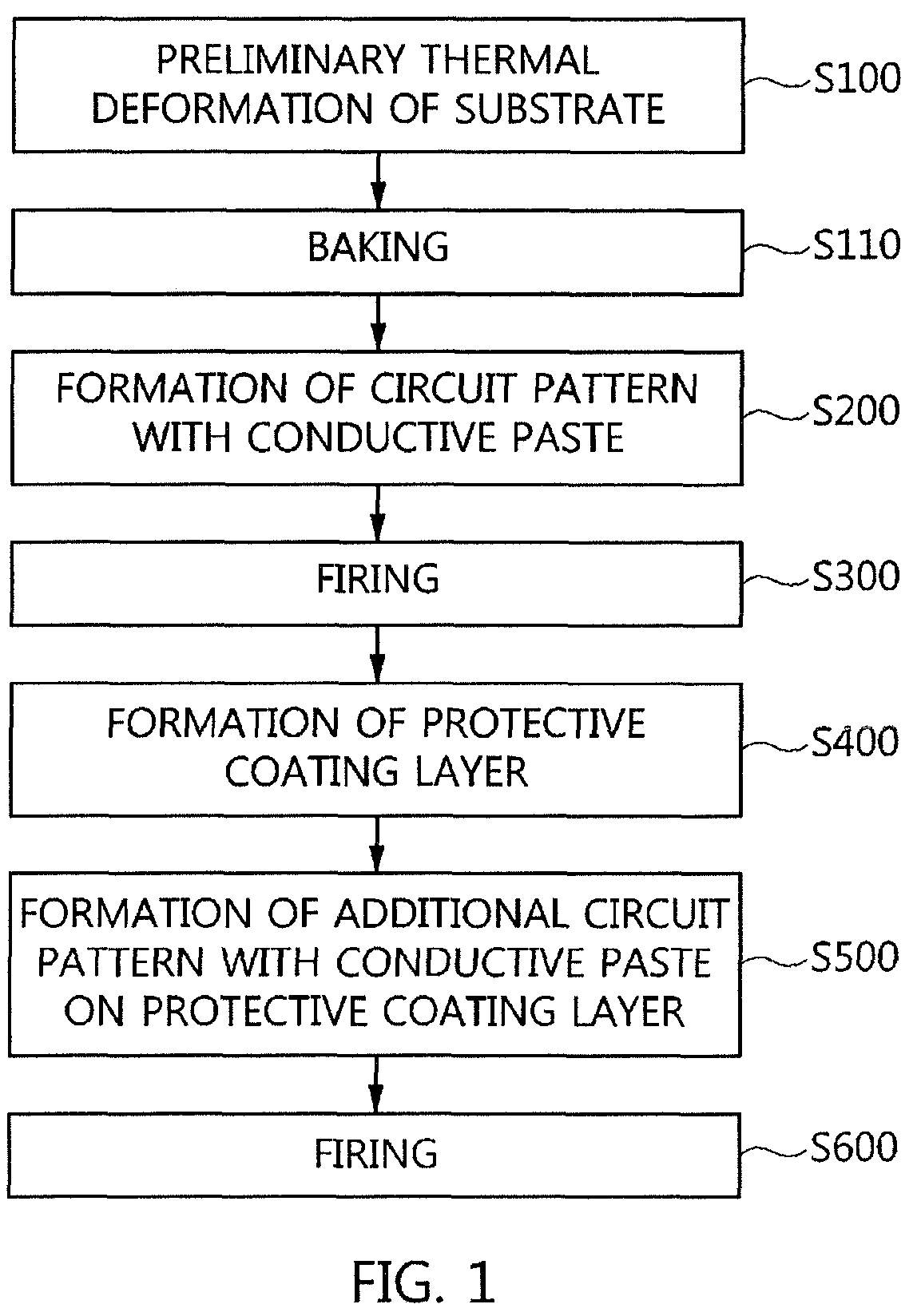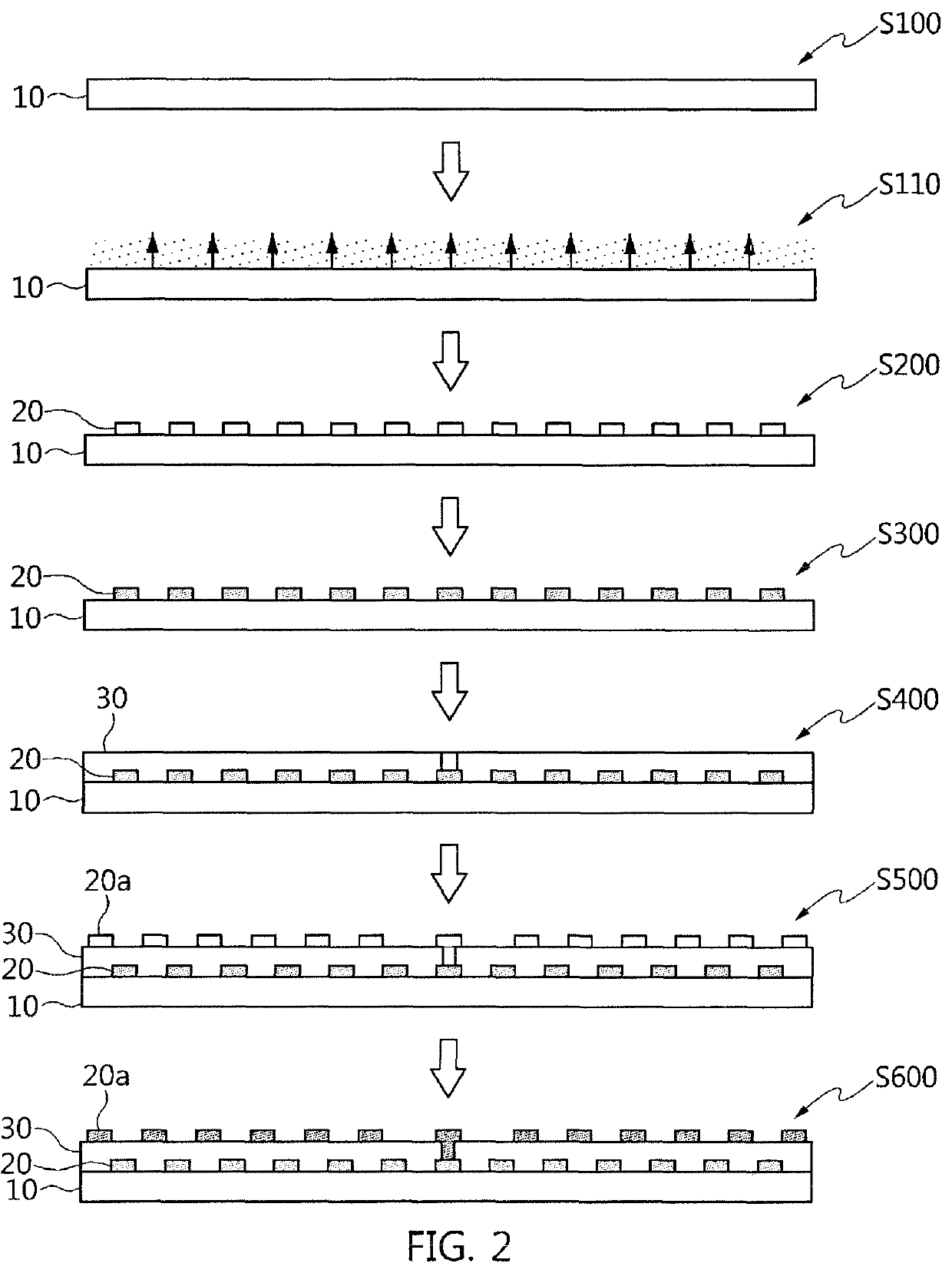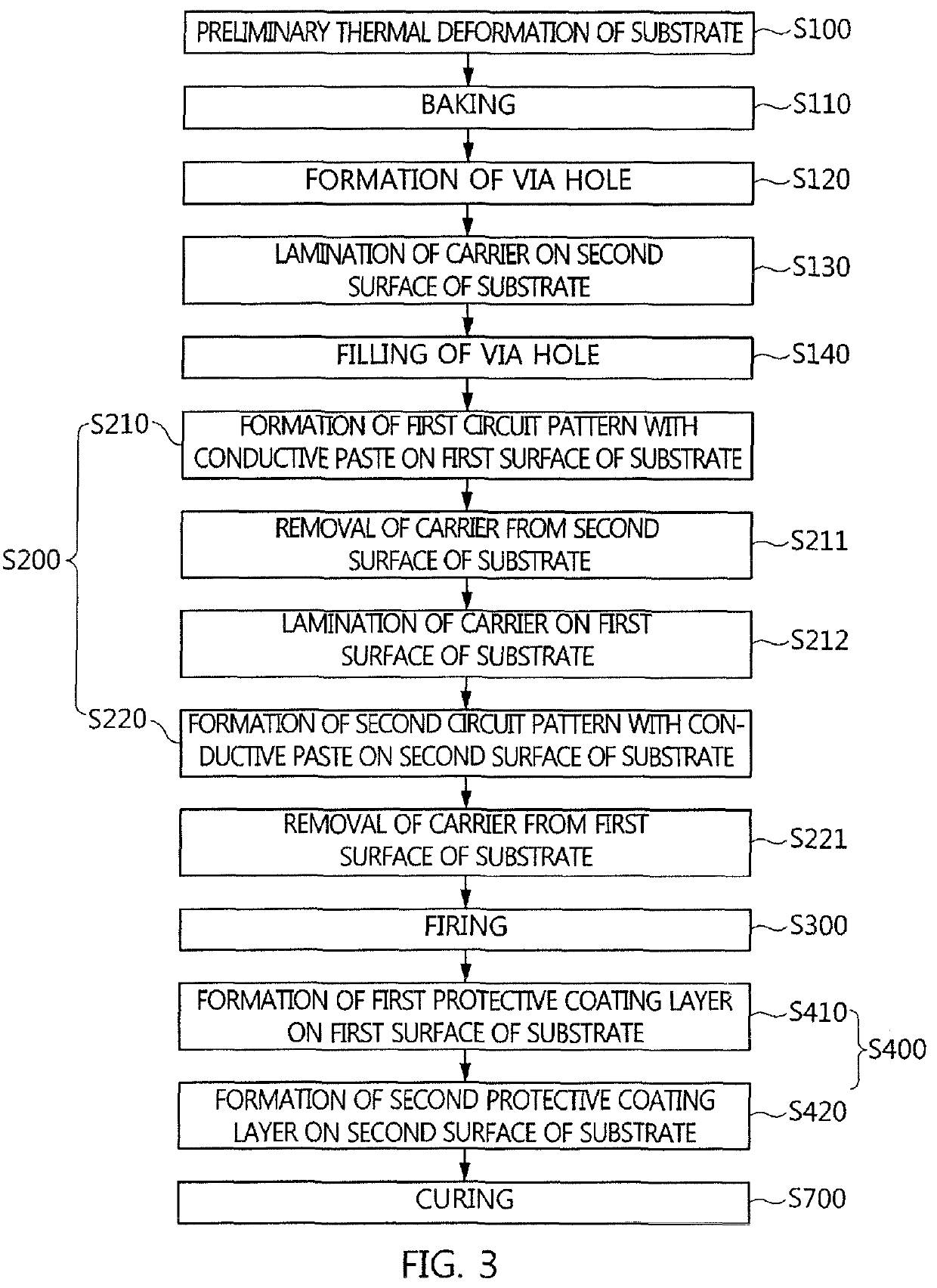Method for manufacturing flexible printed circuit board and flexible printed circuit board manufactured thereby
a manufacturing method and technology of printed circuit board, which are applied in the direction of printed element electric connection formation, conductive pattern formation, non-metallic protective coating application, etc., can solve the problems of high manufacturing cost and complicated manufacturing process, and achieve stable adhesion of circuit pattern, ensure dimensional stability, and prevent adhesion
- Summary
- Abstract
- Description
- Claims
- Application Information
AI Technical Summary
Benefits of technology
Problems solved by technology
Method used
Image
Examples
example 1
[0154]A silver paste comprising a silver powder having a particle size ranging from 50 nm to 5 μm and a polymer resin binder was printed on the first surface of an insulating film and the via hole and on the second surface of the insulating film and the via hole. Thereafter, the insulating film printed with the conductive paste was dried at room temperature and then thermally treated in a temperature range lower than 200° C. and in a temperature range of 300 to 450° C.
[0155]After curing and sintering of the silver paste according to the disclosure, the extent of growth of the silver powder particles was observed. Consequently, when thermal treatment (curing) was performed at a temperature of less than 200° C., the silver powder particles were in contact with each other, and when thermal treatment (sintering) was performed at 300 to 450° C., bindability between the silver powder particles was increased by the growth of the silver powder particles.
[0156]Based on the results of testing...
example 2
[0157]Thermal analysis was performed depending on the sintering temperature of the silver paste. The polymer resin binder was ethyl cellulose.
[0158]FIGS. 7 to 9 are graphs illustrating the results of thermal analysis of the silver paste according to this disclosure.
[0159]As illustrated in FIGS. 7 to 9, the thermal decomposition temperature of the polymer resin binder present in the silver paste was determined to be about 350° C., and the same results were also obtained when only the polymer resin binder was analyzed, after separation of the silver powder from the silver paste.
[0160]Therefore, when sintering was performed at 200 to 450° C., and preferably 300 to 450° C., desired adhesive strength between the insulating film and the silver paste was obtained. This is considered to be because firing was completed before thorough thermal decomposition of the polymer resin.
[0161]Based on the results of testing of FIGS. 7 to 9, interfacial separation between the insulating film and the co...
example 3
[0162]The conductive paste for pattern printing was composed of a silver powder having a particle size ranging from 200 nm to 2 μm and a polymer resin binder, and sintering was performed in the temperature range of 200 to 450° C.
[0163]Based on the results of analysis of EDX for measuring the components after sintering of the silver paste according to the disclosure, the presence of pure silver (Ag) without inorganic additives was confirmed, and the silver powder particles were grown after sintering, in which the silver powder had a spherical shape.
PUM
 Login to View More
Login to View More Abstract
Description
Claims
Application Information
 Login to View More
Login to View More - R&D
- Intellectual Property
- Life Sciences
- Materials
- Tech Scout
- Unparalleled Data Quality
- Higher Quality Content
- 60% Fewer Hallucinations
Browse by: Latest US Patents, China's latest patents, Technical Efficacy Thesaurus, Application Domain, Technology Topic, Popular Technical Reports.
© 2025 PatSnap. All rights reserved.Legal|Privacy policy|Modern Slavery Act Transparency Statement|Sitemap|About US| Contact US: help@patsnap.com



